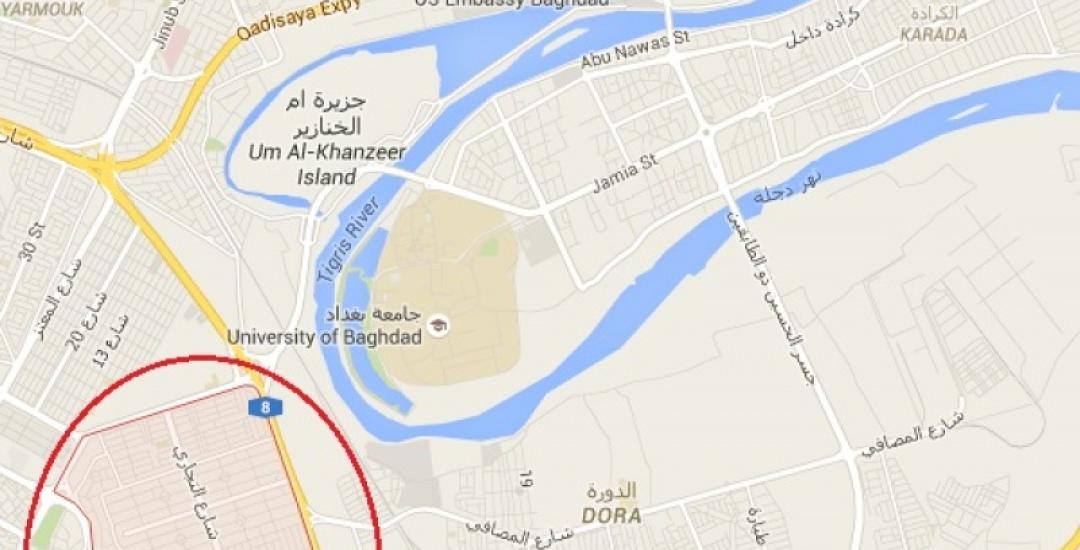
On 4 August 2015, Alkarama, in cooperation with Al Wissam Humanitarian Assembly, sent a communication to the United Nations Committee on Enforced Disappearances (CED) regarding the case of Omar Al Samarrai, a 39-year-old Iraqi citizen who disappeared following his arrest by the "Al Hussam" Brigade in December 2007. Since his arrest, Al Samarrai's family has been constantly blackmailed by members of the security services who have been asking for money in exchange for his release.
On 26 December 2007, forces from the "Al Hussam" Brigade – a brigade operating under the orders of the Ministry of Interior between 2006 and 2008 – wearing military uniforms, stormed into the house of Omar Al Samarrai – a 39-year-old employee of the Ministry of Health – in Baghdad, searching for weapons. After the forces found a riffle and confiscated it, they immediately arrested Al Samarrai. They also took the victim's mobile, car and some money. Al Samarrai was then taken to the headquarters of "Al Hussam" Brigade in Al-Saydiya – a neighbourhood in southwest Baghdad –, where his mother went to inquire on the reasons of his arrest. At the headquarters, Lieutenant Colonel Aqeel informed Al Samarrai's mother that her son was supposedly arrested for "having fled his region," as he was previously living in the Saladin Governorate, north of Baghdad.
Following his arrest, the victim's family was contacted several times by someone who asked for money in exchange of the release of Al Samarrai. They were last contacted in July 2015, by alleged investigation officers who told them they would release him if the family paid a ransom.
Following Al Samarrai's arrest, his family filed complaints with the Human Rights Ministry and the Ministry of Interior and inquired at various detention centres, including the headquarters of "Al Hussam" Brigade in Al-Saydiya, the Fifth Division of Iraqi Army – a branch of the security services under the control of the Ministry of Interior –, the Tasferat prison near the Al Shaab Stadium and the Taji prison. However, none of these authorities was able to provide them with information on the fate and whereabouts of Al Samarrai.
Having exhausted all domestic remedies, Al Samarrai's relatives appealed to Al Wissam Humanitarian Assembly and Alkarama, who, having established this case as an enforced disappearance, sent a communication to the United Nations Committee on Enforced Disappearances (CED) to call upon the Iraqi authorities to release him immediately, or at the very least to disclose his whereabouts and allow his family to visit him without restriction.
In view of these recurring cases of enforced disappearances, Alkarama urges Iraq, as one of the few States in the region to be a party to the International Convention for the Protection of All Persons from Enforced Disappearance (ICPPED) – binding upon Iraq by virtue of its accession in November 2010 – to live up to its commitments and take all necessary measures to put an end to the widespread and systematic practice of enforced disappearance, in particular by:
• Taking the necessary legal measures to ensure that enforced disappearance is criminalised under Iraqi law and that the penalties provided reflect their grave nature;
• Ensuring that all cases of disappearances are thoroughly, promptly and effectively investigated, and that those responsible are prosecuted;
• Adopting measures to clarify the fate and whereabouts of all victims and ensure that any individual who has suffered as a result of the disappearance is entitled to redress;
• Explicitly prohibiting secret and incommunicado detention and taking the necessary measures to ensure that all secret detention facilities are closed;
• Allowing unexpected independent inspection of all places of detention.
For more information or an interview, please contact the media team at media@alkarama.org (Dir: +41 22 734 1008)
